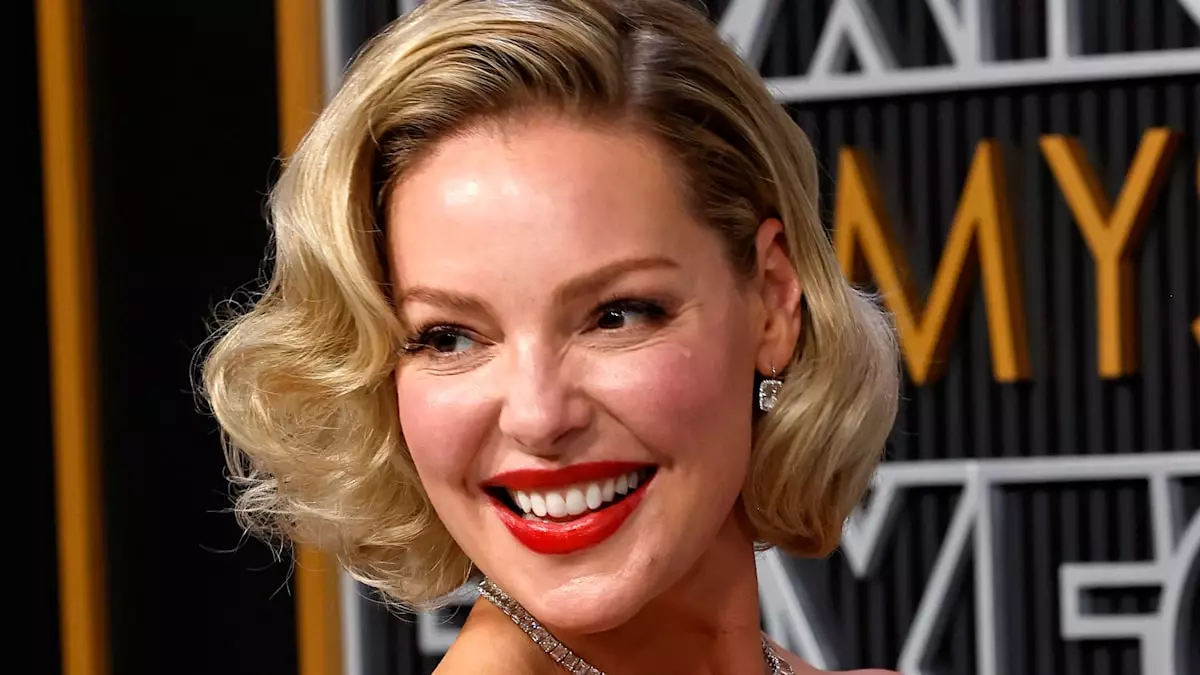Katherine Heigl, an accomplished actress celebrated for her remarkable performances on shows like *Grey’s Anatomy* and in films such as *27 Dresses*, has bravely stepped into the limelight to address a serious yet rarely discussed issue: light bladder leakage during perimenopause. Not one to shy away from difficult conversations, Heigl has partnered with Poise, a well-known brand of bladder leak products, to launch the “giggle dribble” campaign. This initiative aims to infuse humor into what is often considered a taboo subject, encouraging women to embrace their experiences with grace and laughter.
The term “giggle dribble” refers to the accidental leakage of urine that can occur when one laughs, sneezes, or coughs—common experiences for many women, especially those who have undergone childbirth or are experiencing the hormonal shifts linked to aging and perimenopause. By choosing a lighthearted approach, Heigl is not only acknowledging the challenges that accompany this phase of life but also reinforcing the importance of camaraderie and support among women.
In a relatable brunch scene featured in the campaign, Heigl observes her friend experiencing a “giggle dribble.” This incident serves as a springboard for a deeper discussion about the physiological changes during perimenopause, during which the weakening of pelvic floor muscles can lead to unexpected leaks. Heigl cleverly diffuses any embarrassment by transforming a light-hearted mishap into a teachable moment, showcasing her ability to navigate complex emotions with grace and humor.
This willingness to discuss sensitive topics stems from her personal frustrations with the lack of guidance women’s health professionals often provide regarding perimenopause. In an exclusive interview with *People*, Heigl articulated the feelings of isolation many women endure during this stage of their lives. “You’re kind of alone in it… What’s going on with my body?” she reflects, highlighting the confusion and uncertainty so many women face. Recognizing this gap in dialogue, her goal is to ignite open conversations about perimenopause, demystifying a natural part of women’s lives that has long been shrouded in silence.
Heigl’s narrative is a part of a larger movement aimed at reclaiming women’s experiences as they age. In a time when conversations around female health issues have begun to gain more traction, her commitment to discussing bladder leakage and perimenopause exemplifies the need for increased transparency. “Why can’t we just talk about it? It’s a natural part of being a woman,” she argues. Her candidness serves as an invitation for others to join her in breaking down the stigma surrounding these discussions. She wants to create a community where women support one another, share their experiences, and empower each other to navigate through perimenopause without the burden of shame.
Reflecting on her own experiences, Heigl shares an anecdote about her first encounter with leakage post-childbirth. Rather than succumbing to feelings of embarrassment or shame, she decided to approach the situation with laughter, highlighting the significance of reigning in humor as a coping mechanism in potentially difficult circumstances.
Further along in her candid discussions about perimenopause, Heigl candidly admits feeling overwhelmed by the barrage of changes—a sentiment many women can relate to during this transformative phase of life. From mood swings and fatigue to cognitive fog, the symptoms can feel disorienting and isolating. “Just having someone else who’s going through it… helps you feel like it’s not just you,” she emphasizes. This kinship is crucial as women navigate the complexities of aging together.
Katherine Heigl’s venture into discussing perimenopause serves as a vital reminder that support and understanding are essential during this pivotal phase. By fostering an environment where women can openly discuss bladder leakage, hormonal changes, and the overarching complexities associated with aging, Heigl is helping to pave the way for more supportive and informative conversations surrounding women’s health. In the grand tapestry of womanhood, the conversations that Heigl is championing may well serve as the foundation for a more empowered and connected sisterhood.

